There are numerous foods that benefit women going through menopause and perimenopause.
Navigating menopause and perimenopause involves adapting to the physical and emotional changes occurring in the body. While no single food can serve as a solution for these changes, incorporating a diverse and balanced diet can significantly contribute to overall well-being. The list of foods in this blog compiled by Board-Certified Health And Wellness Coach Dr. Darlene Thomas can help manage symptoms and promote a healthier transition through this transformative phase.
Phytoestrogen-Rich Foods
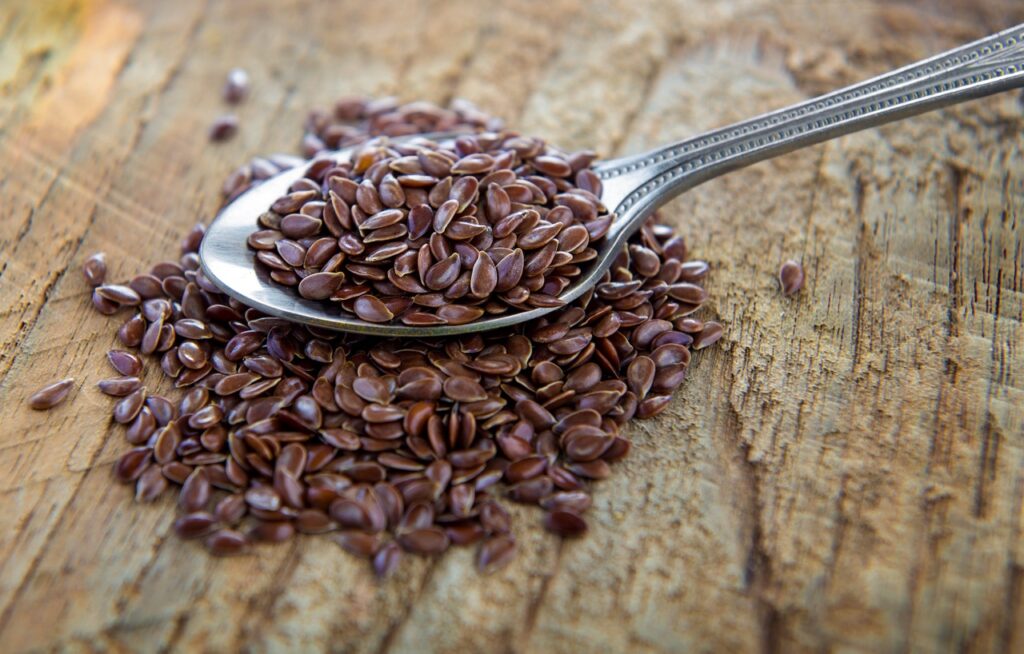
During menopause, estrogen levels decline, which leads to symptoms such as hot flashes and mood swings. Phytoestrogens, plant-based compounds that mimic estrogen, should be added to your diet. Foods like soy products, flaxseeds, and legumes contain high levels of phytoestrogens. They provide a natural way to balance hormone levels and alleviate symptoms.
Calcium and Vitamin D-Rich Foods
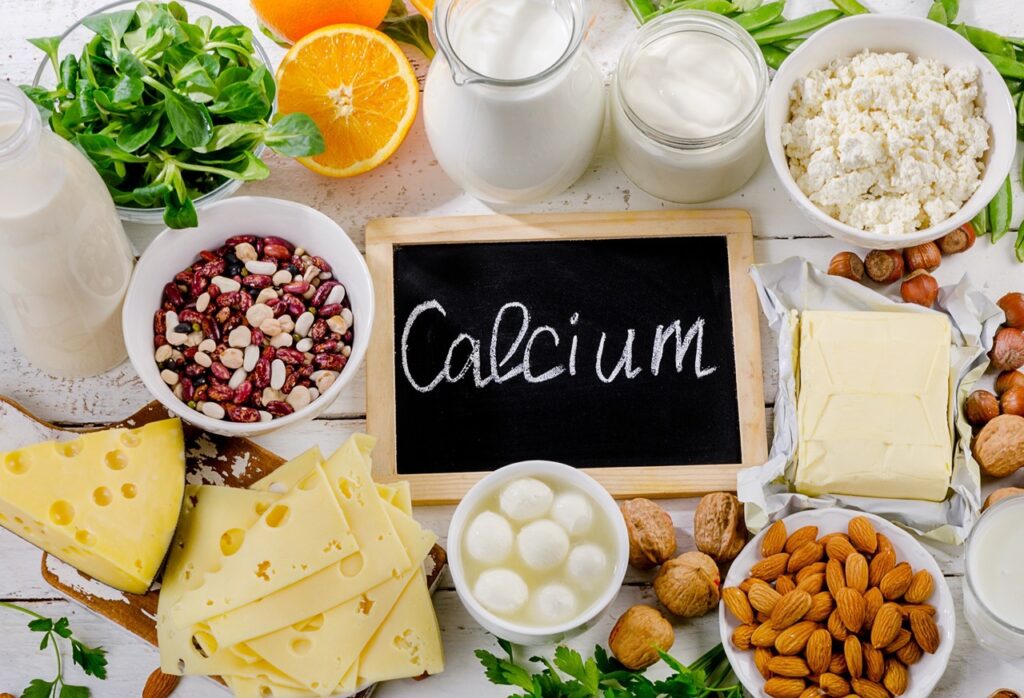
Bone health becomes a significant concern during menopause. The decline in estrogen can lead to bone density loss. Calcium and vitamin D are essential for maintaining strong bones. Include dairy products, leafy greens, and fortified foods in your diet to ensure an adequate intake of these nutrients. Regular exposure to sunlight is also crucial for synthesizing vitamin D.
Omega-3 Fatty Acids
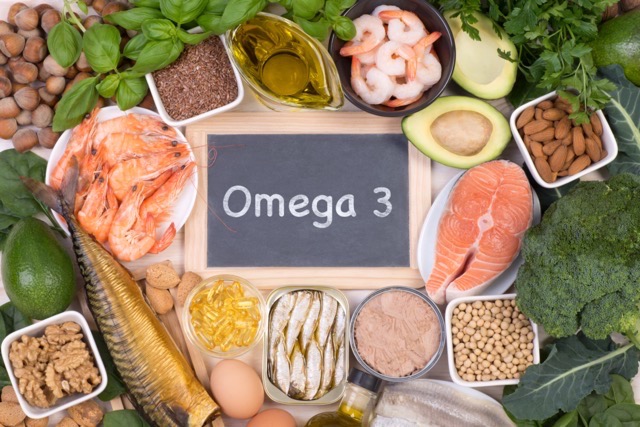
Omega-3 fatty acids, found in fatty fish like salmon and trout, as well as chia seeds and walnuts, have anti-inflammatory properties. They can help alleviate joint pain and stiffness, which are common symptoms during menopause. Additionally, omega-3s support heart health, which is particularly important because the risk of cardiovascular issues may increase during this stage.
Whole Grains for Mood Regulation
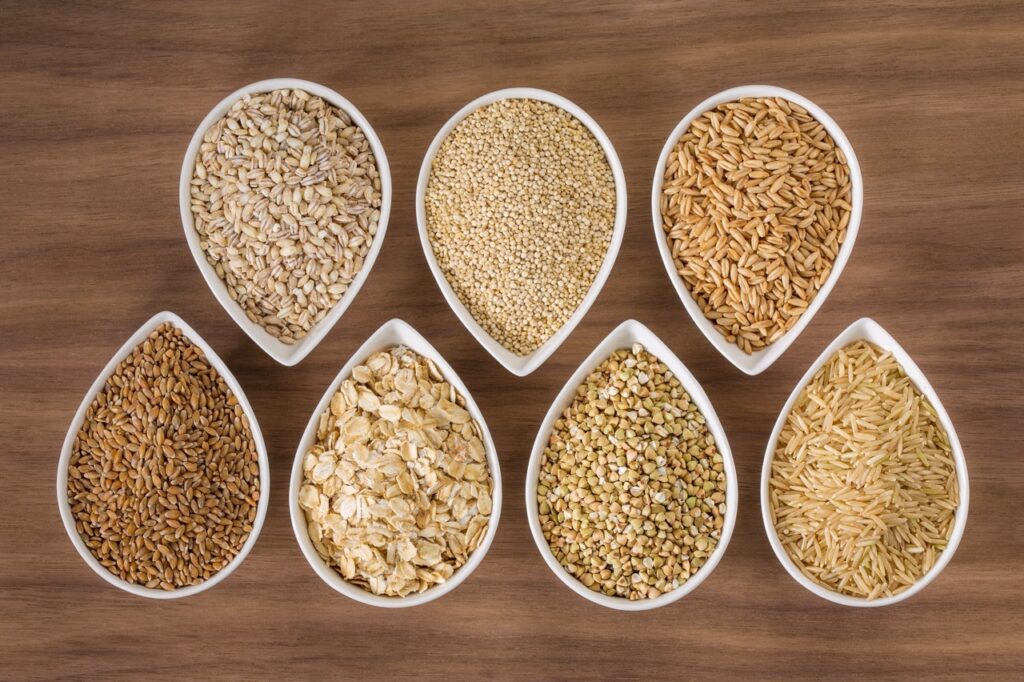
Fluctuating hormones can impact mood and contribute to feelings of anxiety and depression. Whole grains, such as quinoa, brown rice, and oats, can help regulate mood by stabilizing blood sugar levels. These complex carbohydrates are rich in serotonin-boosting nutrients, promoting a sense of well-being and mental balance.
Colorful Fruits and Vegetables
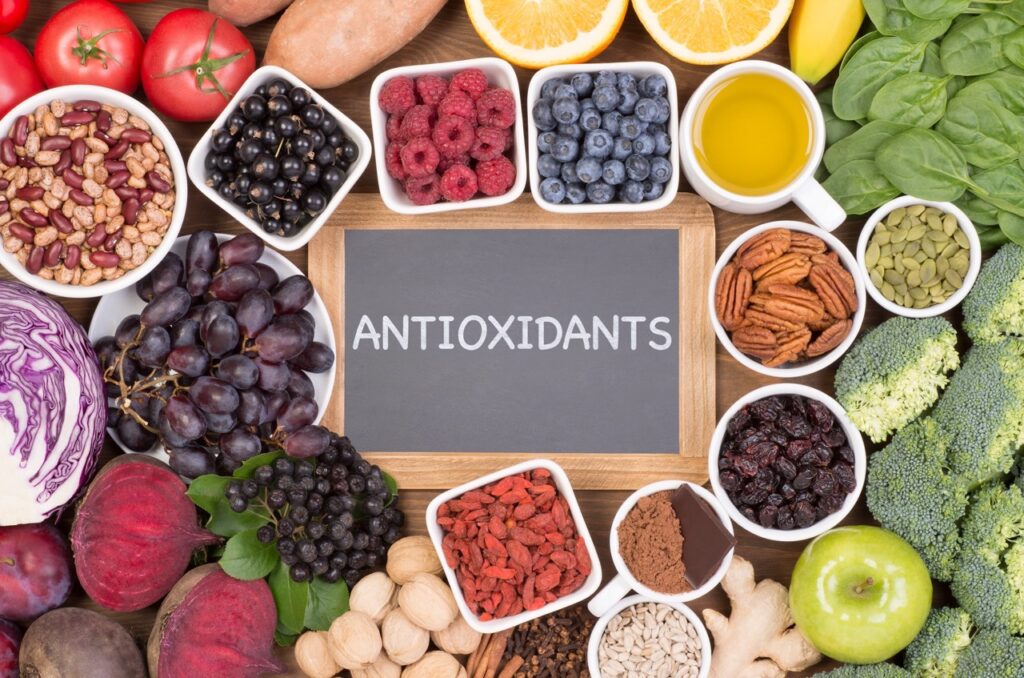
Antioxidant-rich fruits and vegetables are crucial in supporting overall health during menopause. Berries, citrus fruits, leafy greens, and cruciferous vegetables contain vitamins and minerals that combat oxidative stress. They also contribute to heart health and aid in weight management, which can be a concern during menopause.
Protein for Muscle Health

As estrogen levels decline, muscle mass may decrease, leading to a higher risk of osteoporosis and metabolic issues. Adequate protein intake becomes crucial to support muscle health. Include lean meats, poultry, fish, eggs, and plant-based sources like beans and tofu in your diet to maintain muscle mass and strength.
Probiotics for Gut Health
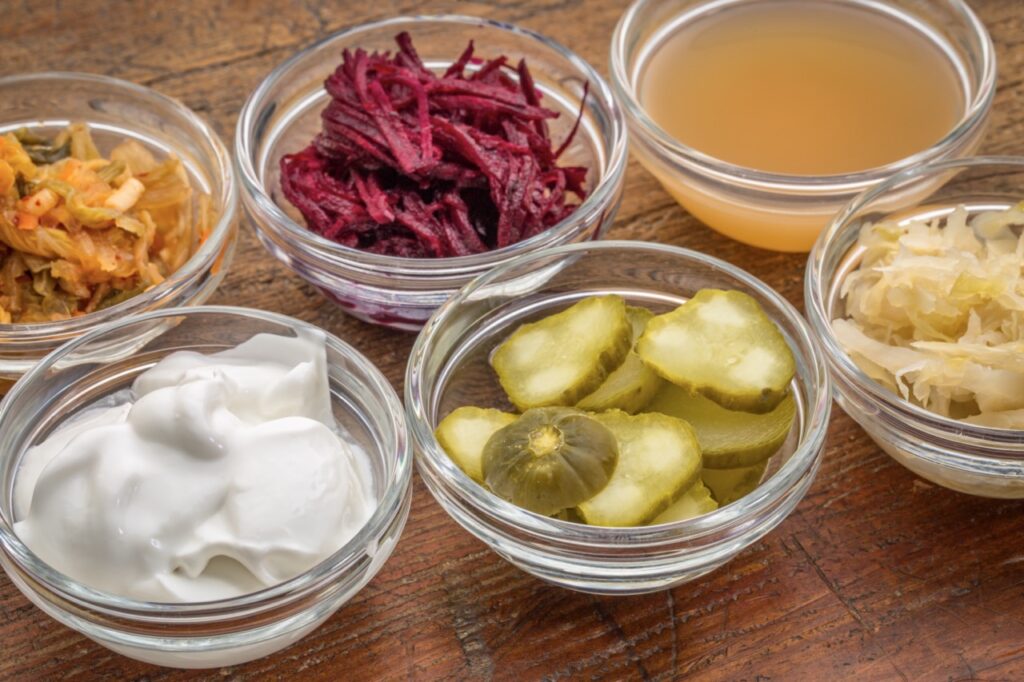
Hormonal changes during menopause can affect digestive health. Probiotics, found in yogurt, kefir, sauerkraut, and other fermented foods, promote a healthy balance of gut bacteria. This can help alleviate digestive issues and support the absorption of essential nutrients.
Avocado
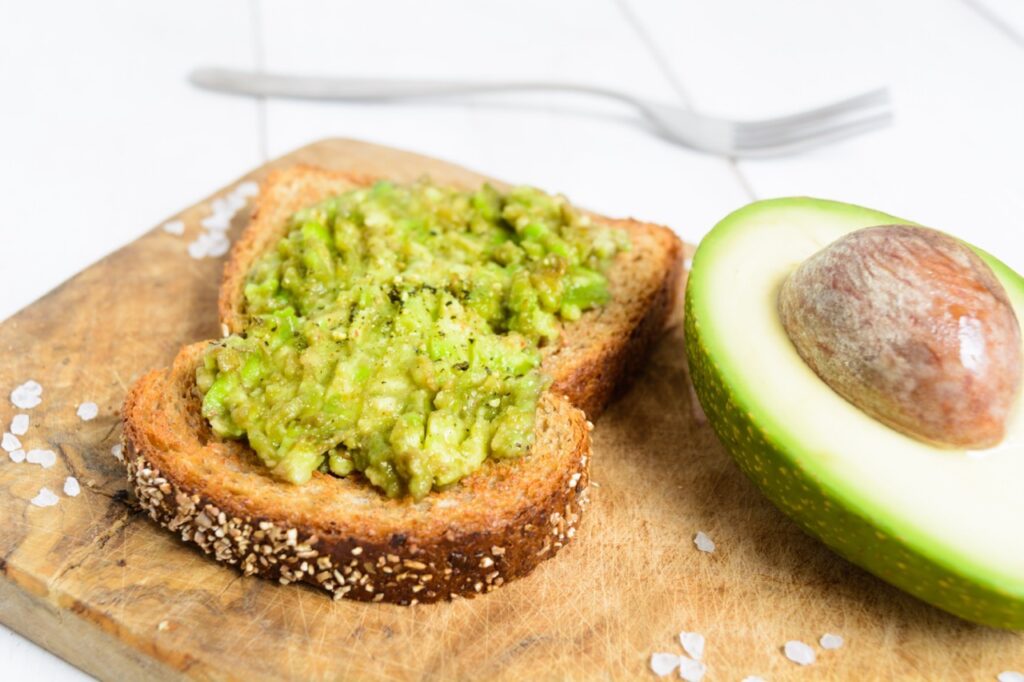
During menopause, women may experience an increased risk of heart-related issues. Avocados are a nutritional powerhouse, rich in monounsaturated, heart-healthy fats. They also contain potassium, which can help regulate blood pressure.
Turmeric
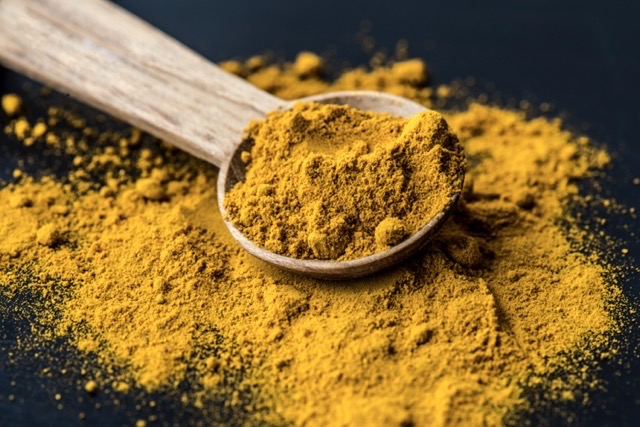
Women experiencing joint pain or inflammation during menopause may find relief by incorporating turmeric into their diet. Turmeric, known for its active compound curcumin, possesses potent anti-inflammatory and antioxidant properties. It can contribute to joint health and alleviate discomfort, promoting better mobility and an improved quality of life.
Pumpkin Seeds
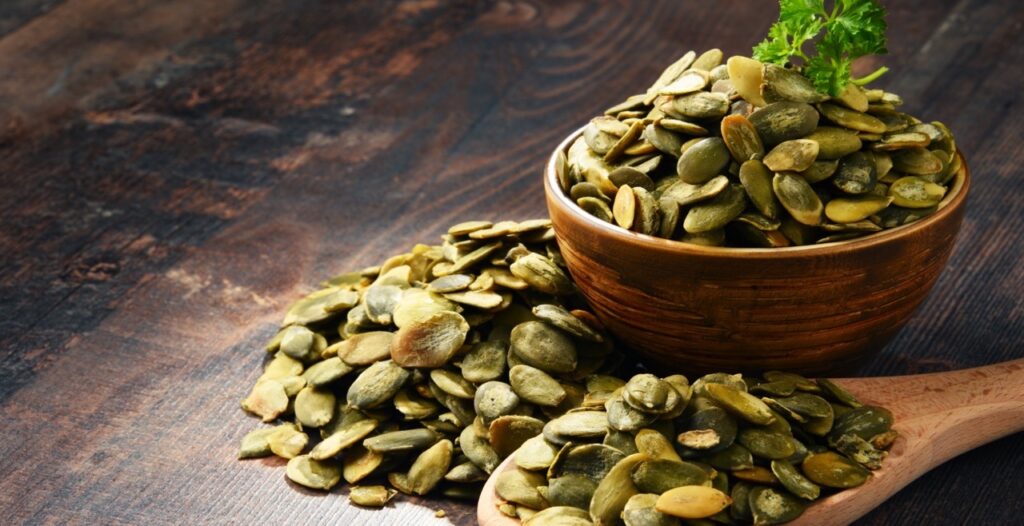
During menopause, women may face sleep disturbances and muscle cramps, which can be linked to a deficiency in magnesium. Pumpkin seeds are a rich source of magnesium, a mineral that plays a crucial role in muscle and nerve function. Including pumpkin seeds in the diet can help promote better sleep quality and reduce muscle cramping, enhancing overall sleep and relaxation.
Broccoli
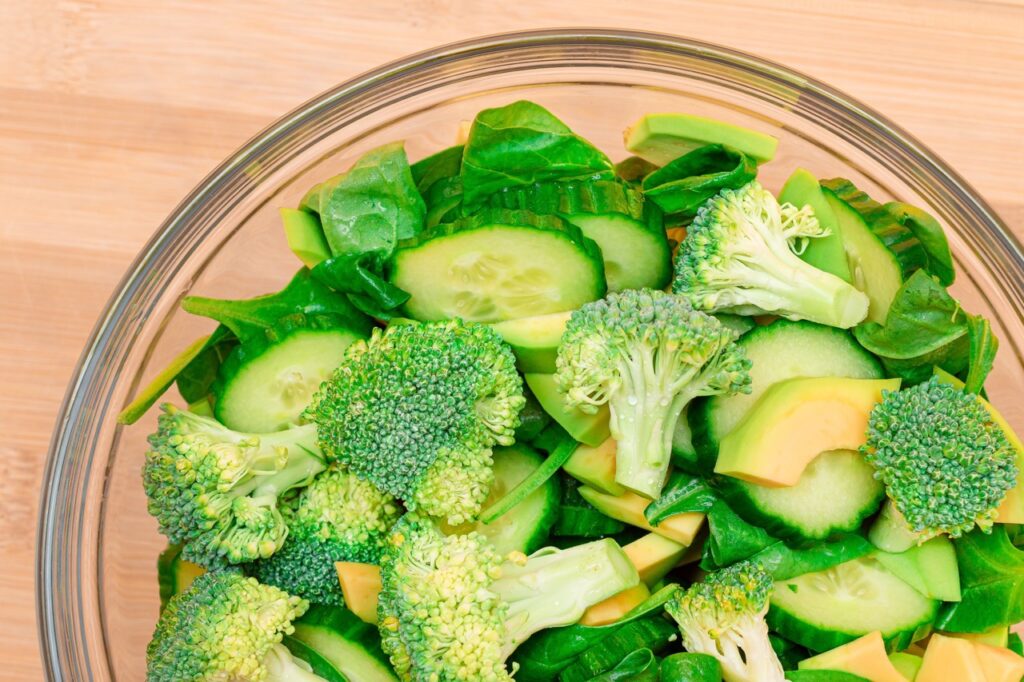
Broccoli, a cruciferous vegetable, can help with various menopausal symptoms. It’s a great source of nutrients like vitamin C, calcium, and fiber. Calcium is essential for bone health, and vitamin C aids collagen formation, supporting skin elasticity. Additionally, the fiber content in broccoli can contribute to digestive health, alleviating common digestive issues that may arise during menopause.
Teas That Can Help With Menopause Symptoms
Herbal Teas

Some herbal teas offer benefits for menopausal symptoms. Sage tea is known for its potential to reduce hot flashes. Chamomile and peppermint teas can help with relaxation and sleep disturbances, which are common challenges during menopause. If you are taking medications or supplements, consult with a board-certified health and wellness coach or physician before drinking herbal teas.
Incorporating these foods into a well-rounded and varied diet can give women the nutritional support they need during the menopausal and perimenopausal stages. It’s important to note that individual responses to foods may vary. Consult with a board-certified health and wellness coach or healthcare professional for personalized advice tailored to individual needs and health conditions.
Meal Examples
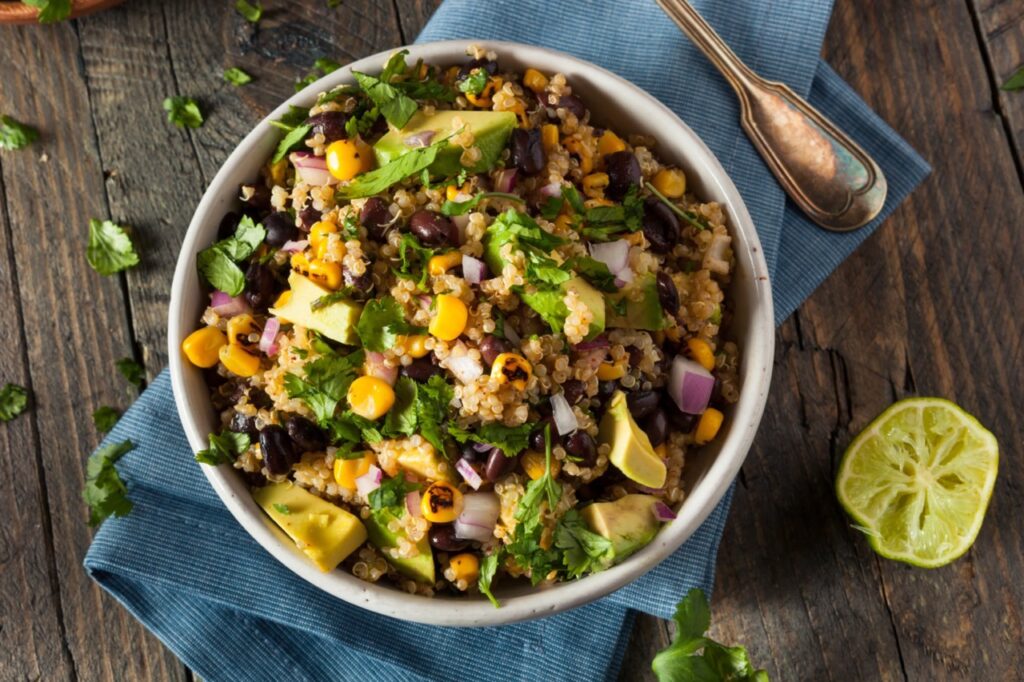
Homemade Southwestern Mexican Quinoa Salad with Beans Corn and Cilantro
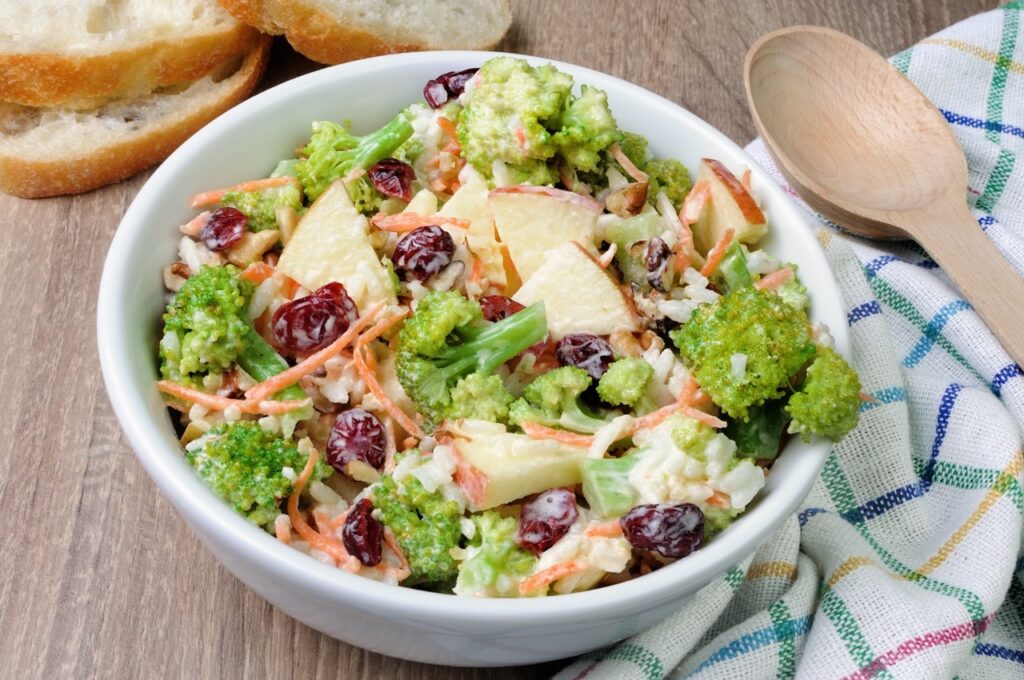
Salad of broccoli, carrots, apples, rice, cranberries and walnuts dressed with yogurt
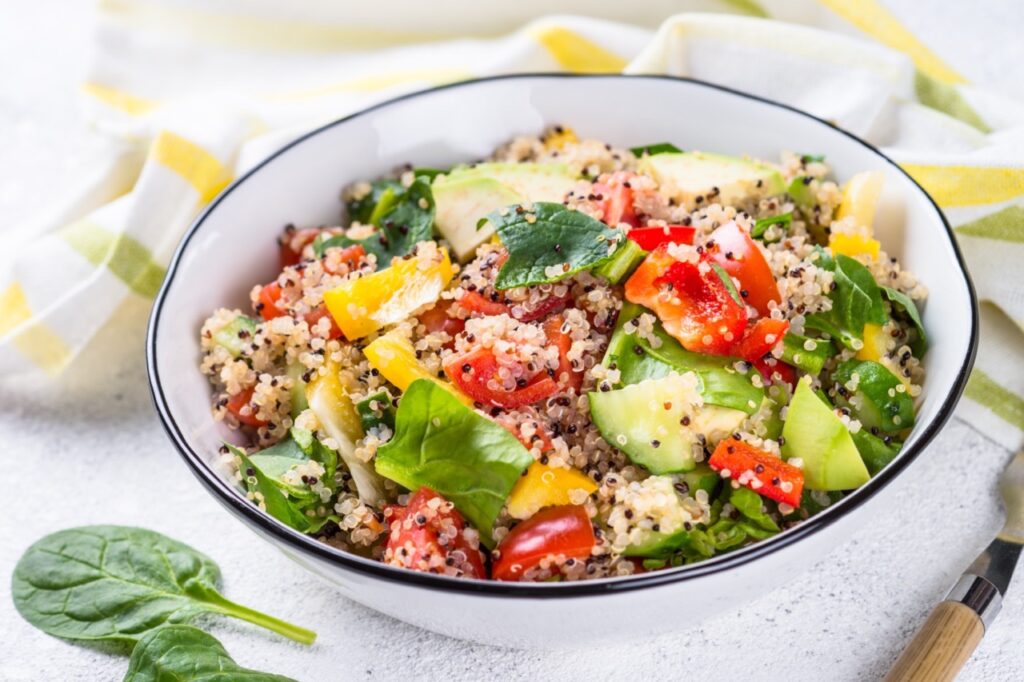
Quinoa salad with avocado, spinach, paprika and tomatoes
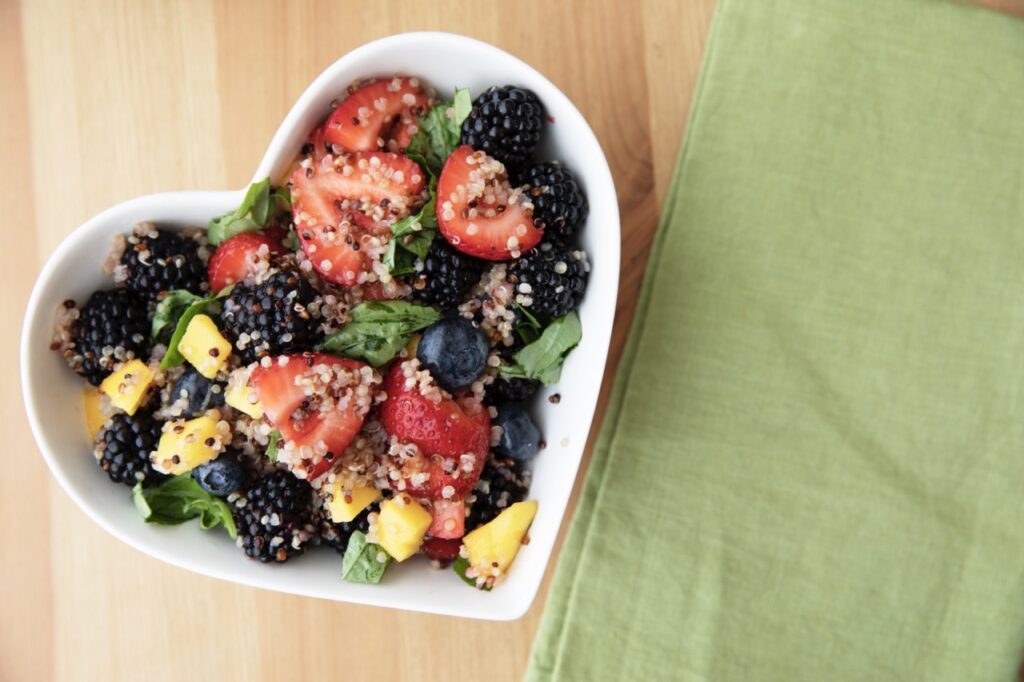
Healthy quinoa fruit salad
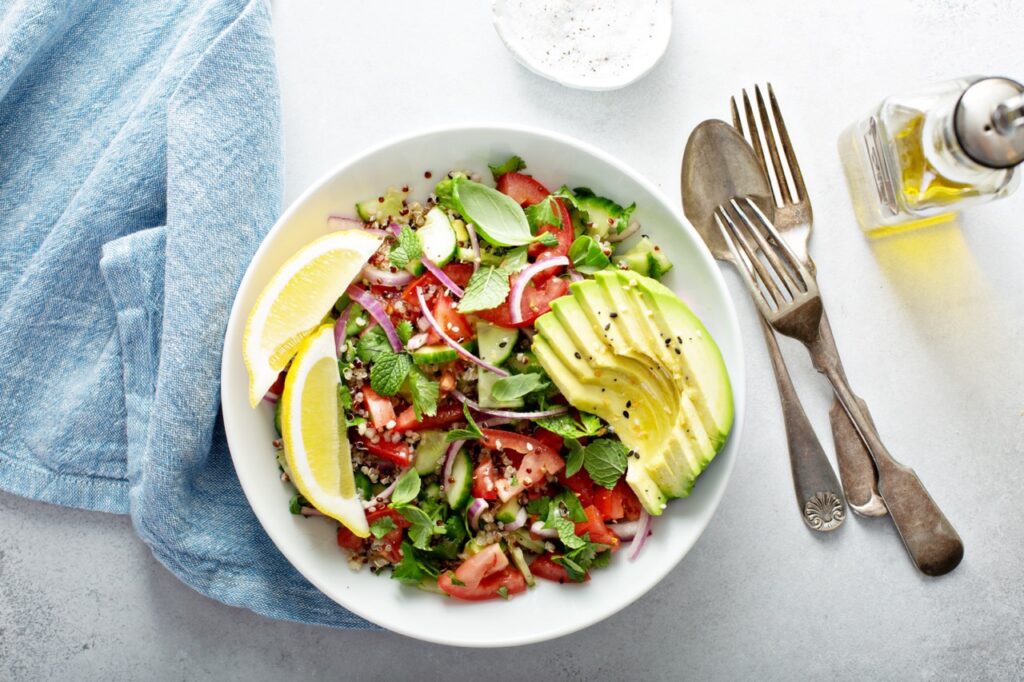
Fresh vegetables and quinoa salad with avocado and lemon dressing

Peppers stuffed with quinoa, shrimp and vegetables
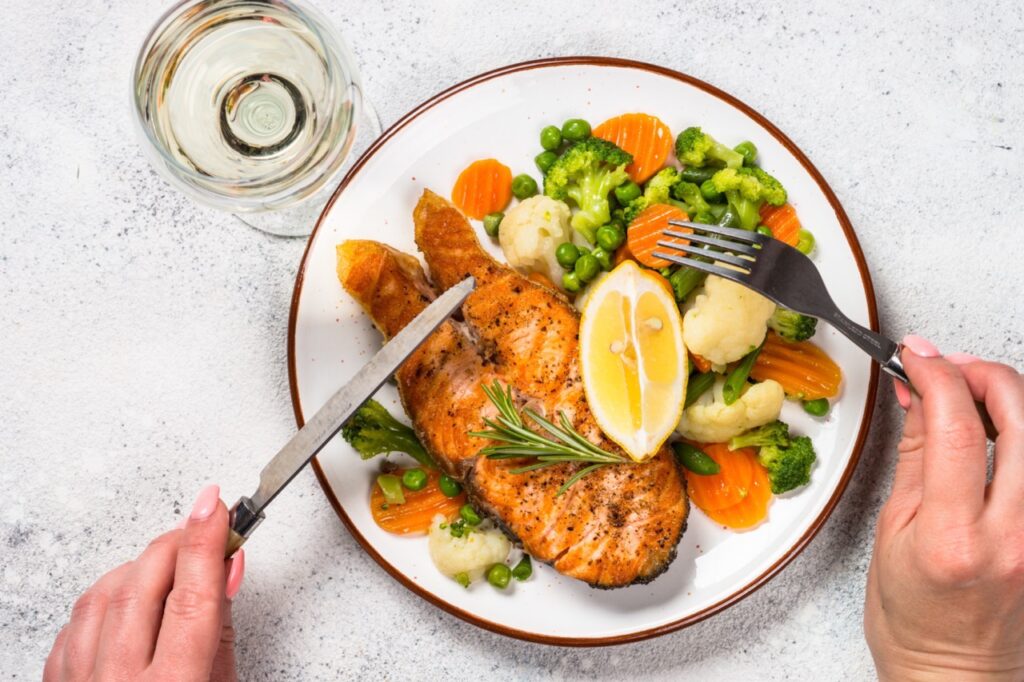
Grilled salmon steak with vegetables
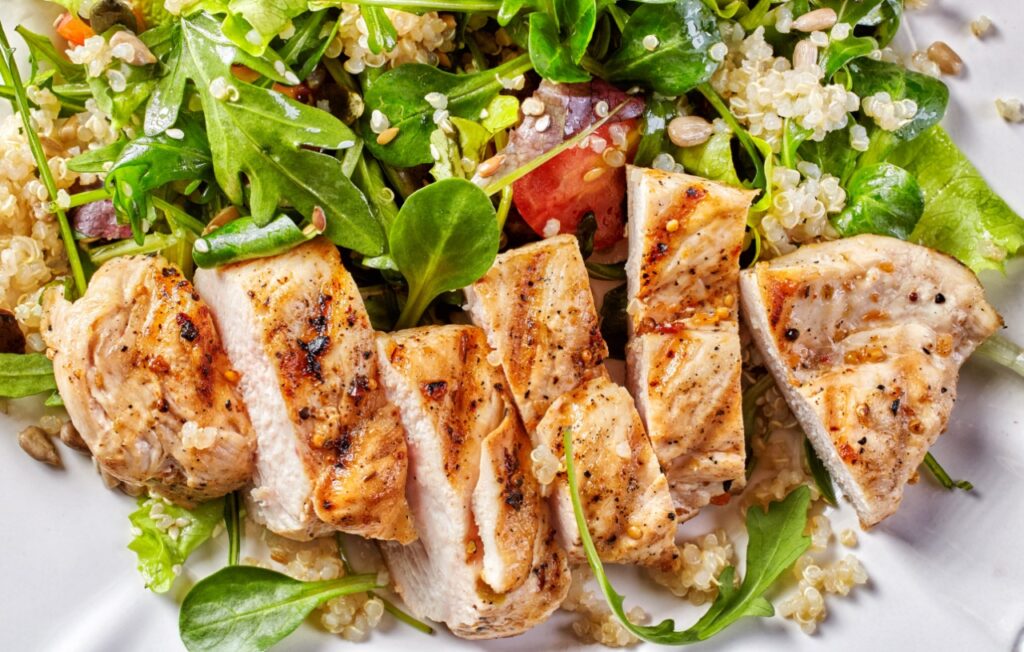
Quinoa and vegetable salad with grilled chicken







